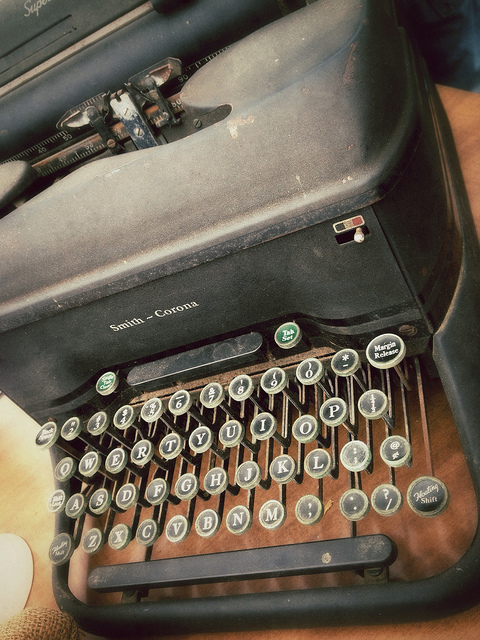
I knew I was screwed when I saw the shadow behind the car in front of my building. Good on me for seeing it—it’s just that I saw it too late to protect myself. I propelled myself onto the curb, keys in hand, hoping to get inside the door in time, but it was no use. She stepped out onto the sidewalk next to me, with her gun pointed straight at my heart.
“Why did I do this?” I berated myself. “WHY WHY WHY?” I could have spent the night at his place. I could have just not gone to his place at all. But no, I went over for a few hours around midnight, thinking I was so smart for having a fellow on call just a few blocks away. My lifestyle doesn’t allow for relationships—freelance writing is a dangerous business, as evidenced by my new friend with the pearl-handled pistol.
“Give it to me,” she demanded. “I know you have it. I need that editor’s name.”
I played innocent, stalling for time and noticing a wobble in her voice. “What editor?”
“You know,” she said, eyes narrowing. “The one with the budget who is giving assignments.
“You’ve got to be kidding, lady. There aren’t any editors with money to assign stories these days. Everybody knows that.”
“Stop lying to me!” Her voice had stopped trembling: bad sign. “I heard you paid some of your bills the other day. Tell me who your connection is, now, or I’ll shoot. I haven’t had an assignment in over a year! I’m turning into my day job, and that is not making me a very nice person.”
“I’ve been where you are, but I don’t know anything, I swear.” I was considering letting her just kill me—I’d be out of my misery and she’d probably get a memoir out of it.
She cocked the gun. Time was running out.
“OK, OK I’ll tell you. But you’re not going to like it.”
“Don’t tell me you sold a book. I know there’s no money in that either.”
“It’s not that.”
“And don’t tell me that it’s some crap magazine or a content farm website that I wouldn’t lower myself to, because some of us can’t even get assignments from them!”
“It’s not that either.”
Something in my face must have changed as I prepared to tell her the truth, because her expression softened a little, and she lowered the gun. Slightly.
“Tell me then.”
“I took a day job,” I began—and I saw the anger return to her face. “Wait! There’s more to it. I took a day job, but I was still a writer. You know how it is. I was going to write on the side, or in my free time. In fact I’d be in better shape to write because I wouldn’t be so worried about money any more.”
She was nodding.
“And then,” I said. “And then…” I realized I was crying. “And then, I just gave up. I don’t have a day job any more. I just have a job. I’m not a writer. I’m just someone who sits at a desk. There’s no editor. There’s no assignments.”
She was crying too, the gun at her side. “I’d hoped…”
“I know,” I said. “I hoped too.”
She turned the gun around, and gave it to me. “I think you’re gonna need this.”
She walked away.
I wondered who I could pitch the story to.
Mikki Halpin is the author of The Geek Handbook and It’s Your World: If You Don’t Like It, Change It.
Follow Vol. 1 Brooklyn on Twitter, Facebook, Google +, our Tumblr, and sign up for our mailing list.
